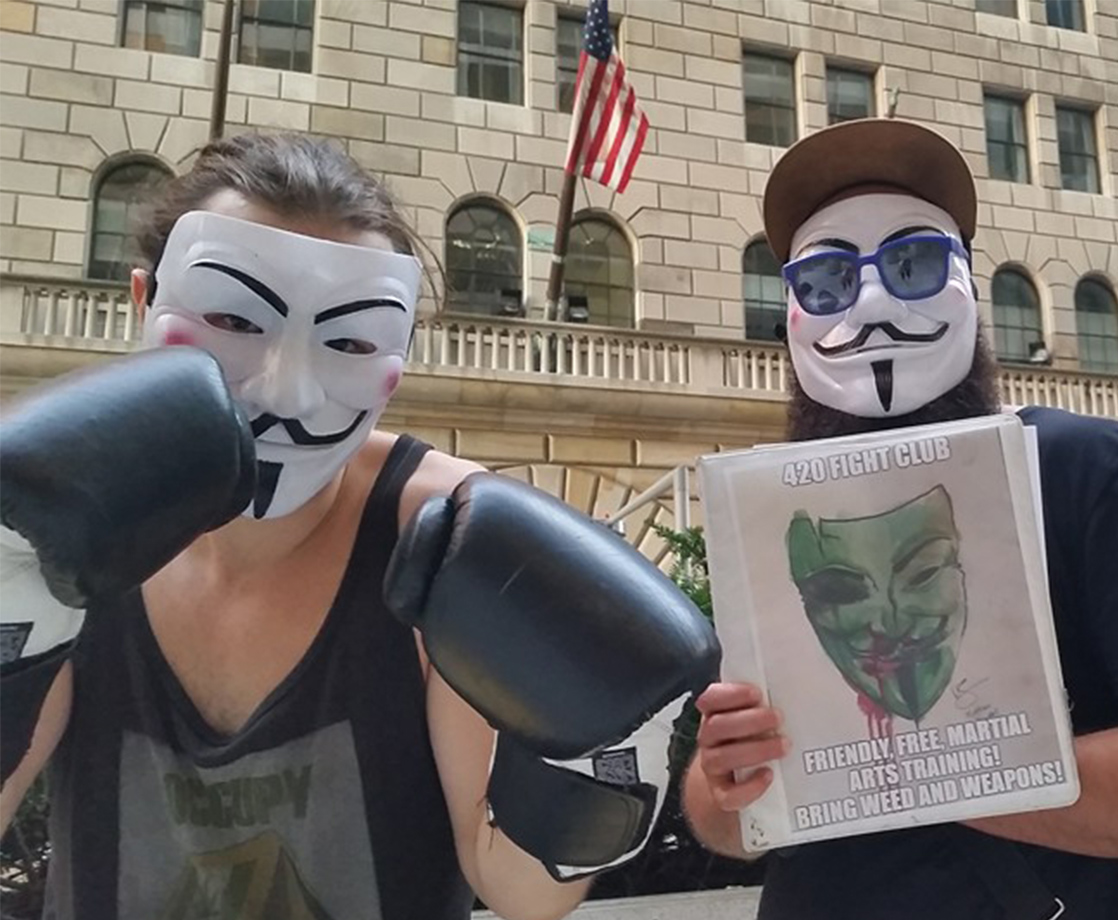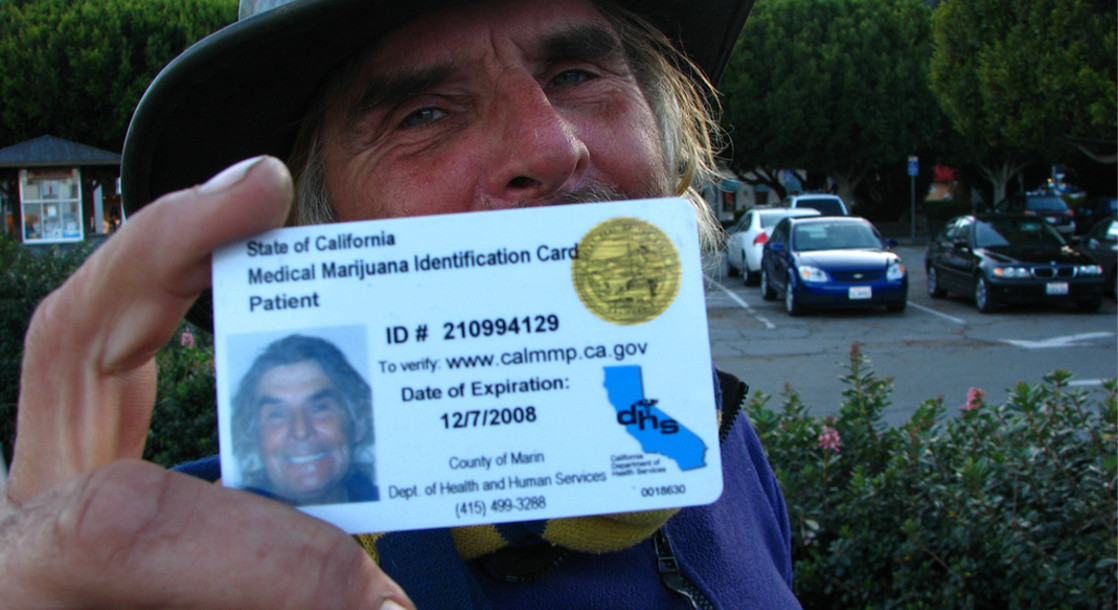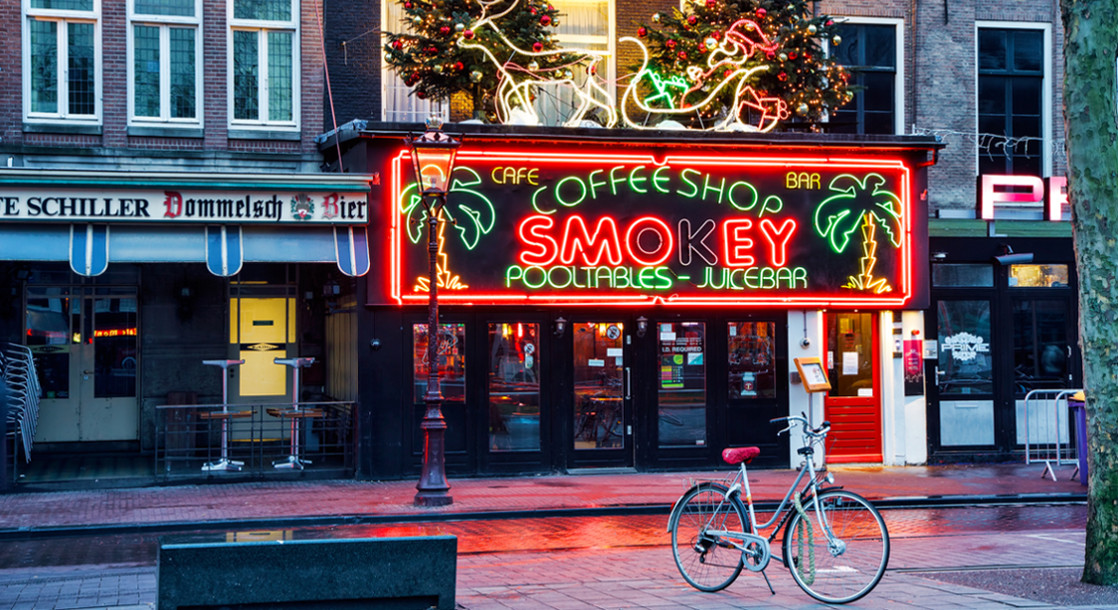Photos courtesy of Harrison Schultz and the author
When the weather is warm, 420 Fight Club meets in front of the Federal Reserve building in Lower Manhattan on Fridays to practice hand-to-hand combat, fighting with batons, disarming a knife or gun-wielding attacker, kicking pads, and hitting joints. The martial arts meet-ups are also public smoke-outs, generally BYOC (bring your own cannabis).
Harrison Schultz founded 420 Fight Club to break stereotypes.
"We get high and do martial arts in public to challenge people's notions about cannabis, that it's a debilitating drug," Schultz told MERRY JANE. He also aims to "challenge people's perceptions about martial arts, that it's for violent people."
Schultz, 34, of Bushwick, is a lifelong martial arts practitioner and a PhD candidate in Sociology at The New School for Social Research. He studies how and why certain things in society have become deviant or subversive, such as cannabis, and how that changes through cultural movement building.
He both reinforces and contradicts the stoner stereotype. With long hair and a chill demeanor that includes a drawled speaking style, Schultz liberally uses phrases like "dope" and "straight up." His apartment consists of Eastern art and figurines, large Papasan chairs, as well as cannabis and smoking devices out in the open. But he is charismatic, funny, and well-read. He can lead lengthy conversations about sociological theories, throw obscure martial arts and military history facts at you, and break down the anatomy and functions of various compounds within cannabis.

Harrison Schultz, founder of 420 Fight Club
A self-identified anarchist, Schultz started 420 Fight Club three years ago, right after his experience as an early participant in Occupy Wall Street. There, he saw which movement-building strategies succeeded and failed, which he tries to apply to 420 Fight Club.
"Occupy Wall Street was bigger online than offline," Schultz said. "The reason why Occupy Wall Street was so powerful was because all these occupations started up all over the place. I want to see other people start their own 420 Fight Club franchises."
Only three to 12 people typically show up for an average 420 Fight Club meeting, but, like Occupy Wall Street, the bigger focus is on live streaming over Facebook to develop a more scaled, decentralized following. The livestreams currently average a modest 200-500 views each, but Schultz and his core group members remain deeply committed.
Another aspect of 420 Fight Club is its call for monetary reform, a cause Schulz champions on the group's social media pages and in its event promotion — and one that attracted him to Occupy Wall Street in the first place. Earning a small crowd of onlookers during their public meet-ups is common for 420 Fight Club, and those people can expect to be handed a pamphlet about dismantling the Federal Reserve (hence the meetup location) or about why it should be illegal for banks to use debt as spendable money. Setting his batons down on a bench after sparring, a sweaty Schultz hit a vape pen and then made the rounds. If you're within 15 yards of him at this point, expect a pamphlet. He's impervious to gawking, snickers, and haughtiness, and there's always that one curious person who asks questions and chats further.
But, ultimately, the group focuses on the intersection of cannabis and martial arts, which Schultz finds many connections between. He said marijuana enables him to be more creative and strategic in a martial art like jiu jitsu, a submission-grappling discipline often described as a physical chess match. He offered medical facts to substantiate this, pointing out that the main chemical in cannabis, tetrahydrocannabinol (THC), is a temporary bronchodilator, which aids in cardio, and how THC promotes neurogenesis, the growth of brain tissue, which aids in concentration.
At the same time, he can also wax poetic in a way that wades deeply into abstraction:
"Cannabis and martial arts have prohibition in common," Schultz said. "Many different martial arts were prohibited at various times in history. They became passed around in secret, like cannabis. Cannabis prohibition and martial arts prohibition are both time-honored inhumane forms of social control. And what's the point of being good at all these techniques to defend yourself if a bank can have you thrown out on the street? That's the threat to your safety. How do we use martial arts to get people into a non-violent movement?"

Nevertheless, 420 Fight Club has had a majorly positive effect on some people, like 26-year-old Kasheef Brown, who originally met Schultz at a local cannabis event. From the Bronx, Brown works as a delivery person and is an active member of the group. He claims the synergy of cannabis and martial arts changed his life and put him on a path towards self-realization.
"The more I've studied, the more I change for the better," Brown said. "I feel better than I ever have. Doing this opens your perspective in life more, which makes life easier to handle. Cannabis helps with feeling relaxed and martial arts helps with feeling self-assured. Now, I can feel relaxed without smoking and can feel confident even when I'm not doing martial arts."
"Oh, yeah," he added, "I also now know a lot more about monetary reform."
Kasheef Brown sparring with 420 Fight Club founder Harrison Schultz
Scott Gianotti, founder of the Cannabis and Hemp Association, a trade association which is one of the three largest cannabis-themed networking groups in New York City, has known Schultz for a few years.
"There's a history of 420 Fight Club having police called on them," Gianotti said. "That sort of thing concerns me because I don't think that's a good reflection of what we want to portray in the community. But that's me. [Schultz] is an activist who believes in civil disobedience and it's important to have activism styles on both sides of the equation."
In recent years, the known prevalence of cannabis use in the martial arts world has dramatically risen. Ultimate Fighting Championship (UFC) star Nate Diaz even smoked from a vape pen during UFC 202's official post-fight press conference last August. Many credit two famous cannabis smokers/martial arts practitioners for this development: Joe Rogan and Eddie Bravo.
"Rogan and Bravo helped a lot of people in martial arts come out of the closet about their cannabis use," Schultz said.
Rogan is a comedian, commentator for the UFC, and host of the popular podcast The Joe Rogan Experience. With 3.7 million Twitter followers, he is a widely-known cannabis legalization advocate. He's also a black belt in Brazilian jiu jitsu and Tae Kwon Do.
Bravo, founder of 10th Planet Jiu Jitsu, is one of the most successful and famous jiu jitsu athletes and jiu jitsu gym owners in the world, with 74 affiliate locations around the globe. His embrace of cannabis meshing with his influence in jiu jitsu culture has been covered in LA Weekly, here on MERRY JANE, and elsewhere.
Both men credit cannabis as crucial aids in their martial arts development.
Despite the glaring supposed-paradox of blending cannabis and combat, 420 Fight Club may be aligned with a growing national trend in the cannabis and martial arts communities. But if the club can get people to at least reconsider their preconceived notions of regular marijuana users (and ideally eradicate "stoner" stereotypes), then Schultz believes the organization has done its job.
“I hope 420 Fight Club gets so big that enjoying cannabis and martial arts together just becomes a normal, mainstream activity," Shultz added. "We want 420 Fight Clubs all over the world.”
Follow Eli Kurland on Twitter






![SNOOP DOGG’S KING OF THE KOMPOUND – MORTAL KOMBAT 11 TOURNAMENT [Part 4]](https://merryjane.com/wp-content/uploads/2024/04/mW3NLiJ4-720.jpg)






